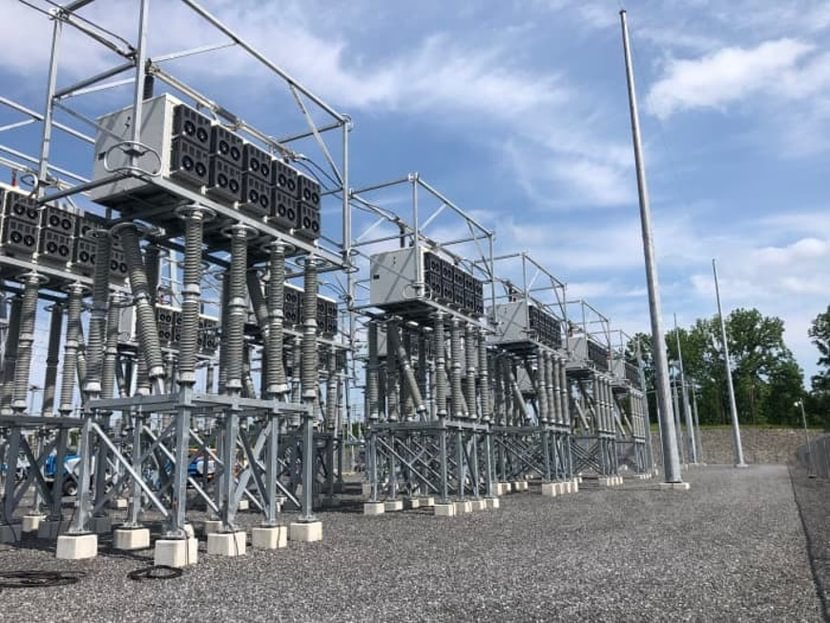BP Energy Partners Backs Power Grid-Technology Company Smart Wires
The Dallas-based private-equity firm led a $65 million growth investment in the business

BP Energy Partners led a $65 million investment in Smart Wires in a bet that the provider of power-flow control systems will benefit from utilities’ desperate need to increase grid capacity.
Durham, N.C.-based Smart Wires develops technologies that help utilities expand the amount of electricity carried on their grids by diverting power from congested transmission lines into less used ones. Customers include Central Hudson Gas & Electric in New York and U.K.-based National Grid Electricity Transmission, as well as Latin American power companies such as Colombia’s Isa Transelca. Smart Wires’ power-control devices have helped free up nearly 4 gigawatts in capacity, enough to power more than 2.5 million homes, the company said.
“It’s a power-electronic solution that boosts capacity by actively changing the way power flows through the transmission system,” said Joanna Lohkamp, Smart Wires’ chief executive. “It makes a more efficient use of the transmission assets.”
Keystone Group LP, a private-equity firm founded by Texas businessman Robert Bass, also participated in the investment. His son, Christopher Bass, a principal at Keystone, led the deal for the Fort Worth, Texas-based firm.
BP Energy considered investing in Smart Wires about four years ago but decided to wait until the business’s technology was more widely adopted, said Ramon Betolaza, a managing director at the Dallas-based firm. Surging demand for electricity in recent years gave BP Energy more confidence in Smart Wires’ prospects, as stressed utilities struggle to overcome decades of “underinvestment in the grid,” he said.
“We think that now is the right time,” Betolaza said. “The growth of artificial intelligence and data-center development, in addition to manufacturing nearshoring, has generated a strong need not just to upgrade the grid, but to unlock and grow capacity in a much shorter period of time than has been historically done by utilities.”
He added that BP Energy plans to use its relationships with utilities to help Smart Wires gain new customers. BP Energy invests in infrastructure and service providers in natural-gas-related sectors, among other businesses that help others use energy more efficiently.
Smart Wires’ systems have important advantages over traditional power flow-control equipment, including bypassing use of transformers, which are costlier and take a longer time to manufacture, Lohkamp said. Smart Wires’ units can be stacked and connected to one another depending on the total power they are handling. That “modularity” enables utilities to better pace their investments and reduce costs, she said.
“You’re only spending as you need to spend and you’re not making a massive bet in the future,” she said. Traditional power-flow control devices, particularly phase-shift transformers, have been used for decades and are much larger than Smart Wires’ units.
Smart Wires was founded in 2010 as a spinout of the Georgia Institute of Technology, where its systems were developed, and listed in 2021 on Europe’s Nasdaq First North Growth Market. The company’s operations were hit by the Covid-19 pandemic, which disrupted supply chains and prevented it from getting all the parts it needed to build its units, Lohkamp said. It delisted from Nasdaq in 2023, the year she became Smart Wires’ CEO. BP Energy, Keystone Group and venture-capital firm 503 Partners—another early backer alongside Keystone—are now the main investors in the company, according to Lohkamp.
“The pandemic really impacted the company because it was in a growth trajectory,” she said. “We had demand but we could not ship [orders] because we didn’t have all the materials.”
Since then, Smart Wires has seen strong growth and has made efforts to strengthen its supply chain and manufacturing, Lohkamp said. She added that the threat of tariffs by President Trump on countries such as Mexico, where Smart Wires has some suppliers, could create new challenges for the company.
“We are paying tariffs right now on our supply of Chinese components, which is one of the reasons we try to limit those,” she said. “But if there are tariffs added in other countries, that would definitely have an impact on us.”
Betolaza said BP Energy isn’t too worried that a tariffs-driven increase in costs would suppress demand for Smart Wires’ products.
“Smart Wires is providing a critical solution and it’s a small part of the overall cost of utilities’ projects,” he said.
Write to Luis Garcia at luis.garcia@wsj.com